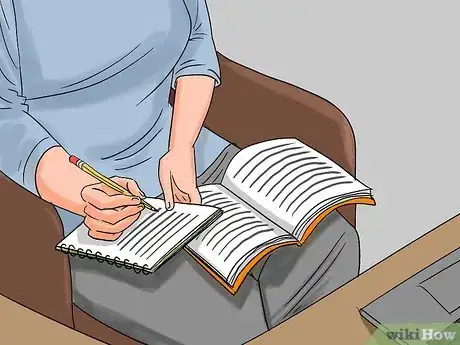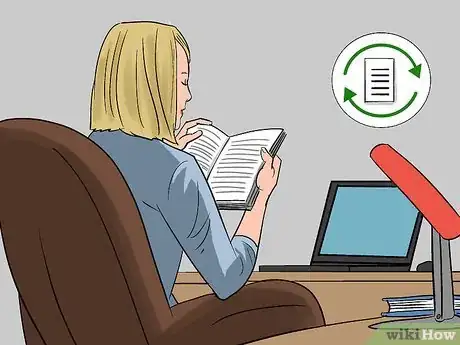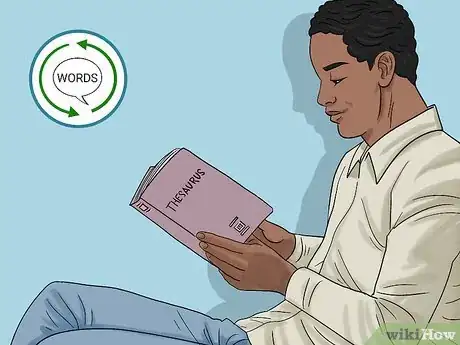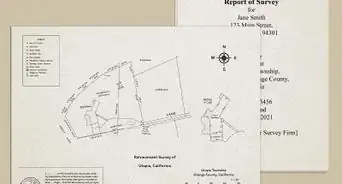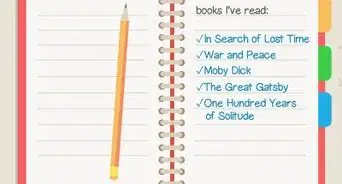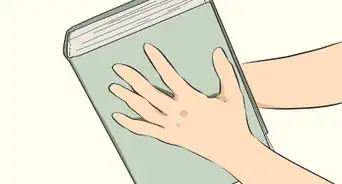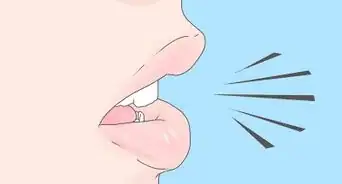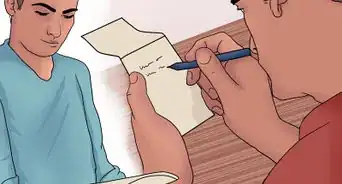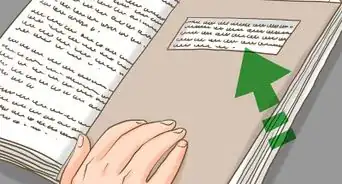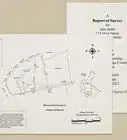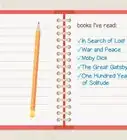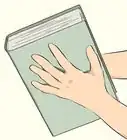X
wikiHow is a “wiki,” similar to Wikipedia, which means that many of our articles are co-written by multiple authors. To create this article, volunteer authors worked to edit and improve it over time.
This article has been viewed 10,609 times.
Learn more...
Many people are required to pick up or master new words and vocabulary. It can help you describe an event or emotion. It can also help you understand what other people think and their opinions. This article will show you how to learn new vocabulary efficiently.
Steps
Method 1
Method 1 of 2:
Reading a Book
-
1Pick the right book. You can choose a book that you would like to read or read a book from a series, or topic that you enjoy. You should be ready to read after borrowing and eager to learn new words.
- You could pick a book in the public library or in a school library.
- You can also choose to read online books if you are at home. Consider looking for online books to read on Epic.com and Scribd.com.
- You can also listen to audiobooks, both Epic and Scribd provide audiobooks to read.
-
2Prepare somewhere to write down new words.
- It is best to keep your new words somewhere to look later and revise. Consider making flashcards, as they are a great tool for revision.
- You could use a new word list table or create one yourself. Think about the best layout for a table or document that will help you remember new words, and create a document that works for you.
- You could create your new word list in a document like a Google Doc or Word, or use a small notebook.
Advertisement -
3Start reading. When you encounter words you do not know, you can use thesaurus.com and dictionary.com to look them up.
- You should write down any words that you wish to learn and keep it neat so you can look and revise them later.
- Sometimes reading only one chapter at a time will help if the book you are reading has multiple chapters.
- Write down any translations of the word if it's a foreign language.
- Write down the meaning of the word and alternative words from a thesaurus.
- Take little breaks while reading. It is better to read when you are in your best mood. Don't force yourself to read if you don't want to. Learn new words only if you are eager to learn.
-
4Use your words and make them your own. After you finish one chapter or the entire book, try using the words you've collected on your own. Here are a few things you can try to help get used to using those words:
- Write a summary of each chapter in your book using the words you've collected. You can easily summarise the chapter from what you've read. Add these words in your own summary.
- Make up a sentence with each word you've collected from the book with their meanings.
- Make your own story using the words from what you've collected.
-
5Revise the words. Not everyone has a great memory, so even if you collected those words and turn them into your own, you still want to revise. After revising them a couple of times, make sure you are confident with those words. Here is a little checklist of what you should be able to do after you revise 5-6 times:
- You can identify the word immediately and know what it means.
- You know how to use the word
- You know what it means in a sentence
- You are familiar with some thesaurus of that word.
Advertisement
Method 2
Method 2 of 2:
Using the Dictionary and Thesaurus
-
1Get access to a dictionary and a thesaurus. You want to have somewhere to look up the meaning of the word when you need to.
- For English words, you might want to use the Oxford dictionary or Cambridge dictionary. You can add a thesaurus if you want.
- Google Translate is a great tool for individual words. Avoid typing long sentences or entire paragraphs in Google Translate because sometimes the translation becomes inaccurate.
- You can use online resources like dictionary.com and thesaurus.com
-
2Use a thesaurus to replace the words you've looked up.
- Replacing the words with other similar words will help you understand when you're reading in a book.
Advertisement
Warnings
- Don't copy the whole book or chapter while using the words to write chapter summary.⧼thumbs_response⧽
- Don't stress out about learning and memorizing. Keep in mind that it takes time to master words.⧼thumbs_response⧽
Advertisement
About This Article
Advertisement



